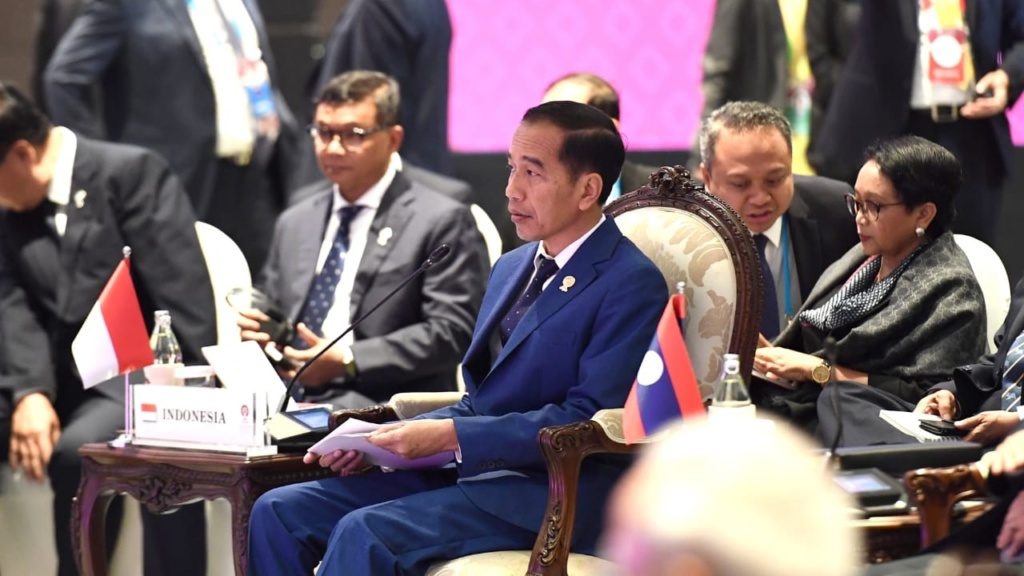Popular Reads
Top Results
Can't find what you're looking for?
View all search resultsPopular Reads
Top Results
Can't find what you're looking for?
View all search resultsThe weight of a giant
Change text size
Gift Premium Articles
to Anyone
P
resident Joko “Jokowi” Widodo’s acknowledgment on the weekend of Southeast Asia’s need for closer cooperation with China may very well be motivated by overarching domestic concerns, but the gesture might have far bigger consequences than we can readily discern.
If anything, the move should be seen as a sign of things to come, particularly in the way Indonesia navigates the throes of the United States-China rivalry.
At the start of his second term, the President was quick to promote the ASEAN Outlook on the Indo-Pacific, a document released in June that outlines the organization’s vision of inclusive partnerships for development in a region straddling the Pacific and Indian oceans.
The ASEAN concept encouraged countries in the region to prioritize collaboration over rivalry, Jokowi said, in a clear swipe at the US over its trade war with China that is undermining the global economy. That his comment also became the launchpad for Indonesia’s hosting of an Indo-Pacific Infrastructure and Connectivity Forum shows that Jakarta could take the lead and push for more concrete steps if the region’s interests aligned with its own.
Meanwhile, the likes of Singapore scrambled to recalibrate the way ASEAN deals with China in talks on the South China Sea code of conduct — even though it is not a claimant in any of the territorial disputes.
The prospect of a regional giant like Indonesia swinging to one side of a great power rivalry serves to underscore how influential the country can be if it is willing to put in the work. The fact that the US and China view Southeast Asia as a key arena for influence, as one expert says, should give ASEAN — and by extension its de facto leader — some degree of leverage.
Having Southeast Asia’s largest economy throw its weight behind what is essentially Chinese economic expansion will no doubt complicate the relationship with Washington, but even then Indonesia is showing how it can manage the relationship with both superpowers.
US Commerce Secretary Wilbur Ross arrived in Jakarta on Tuesday on the back of what is arguably the most disappointing show of US diplomacy in the region in years, but his visit still inspires hope in Indonesia’s private sector.
Ross will be leading a “very high-level business delegation” to try to offset Indonesia’s growing trade surplus, which businesses will use as an opportunity to fill the gap in the global value chain that was left by China as a result of the trade war.
A few thousand kilometers away and out of the public eye, Jokowi’s negotiator-in-chief Luhut Pandjaitan attends the China International Import Expo in Shanghai for very similar reasons.
Now that Luhut wields much more power in government, perhaps he and Foreign Minister Retno LP Marsudi use Indonesia’s clout to help other ASEAN member states deal with the US and China, so they could manage the complex dynamics in the region and help ASEAN earn its centrality.
In short, Indonesia must do better to pull its weight in the region and step up to the leadership role it has often forgotten.










